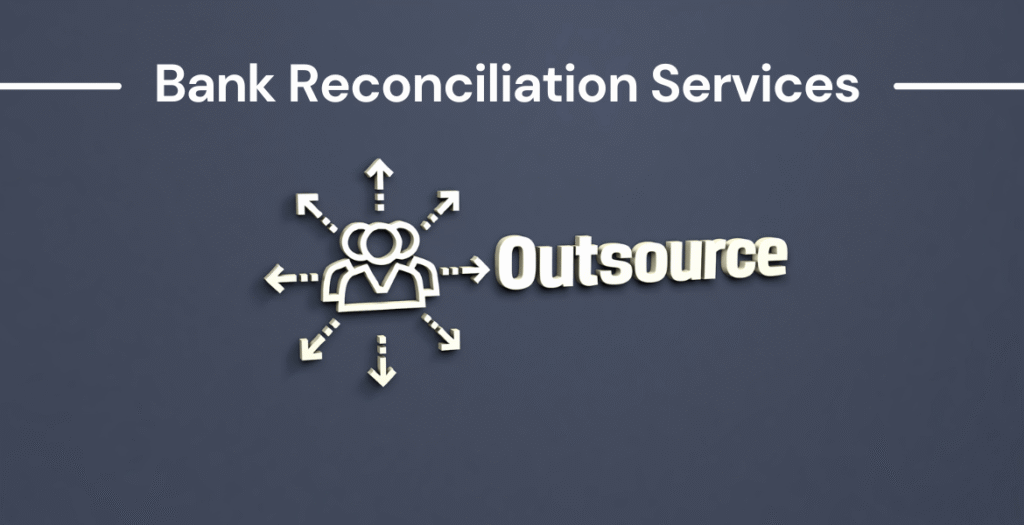Accurate bank reconciliation is one of the most essential components of healthy financial management. Every business—regardless of size, industry, or revenue—needs to ensure that the transactions recorded in its accounting system match the actual activity in its bank accounts. Even small discrepancies can lead to financial inaccuracies, cash flow misunderstandings, or compliance risks.
Despite its importance, bank reconciliation is often time-consuming, repetitive, and prone to error. Many finance teams struggle to keep up with growing transaction volumes or rely on outdated processes that hinder efficiency. As a result, more organizations are turning to bank reconciliation outsourcing services to streamline operations, improve accuracy, and strengthen financial control.
This article breaks down what these services are, how they work, and why they can be a transformational asset for modern finance teams.
What Are Bank Reconciliation Outsourcing Services?
Bank reconciliation outsourcing services involve engaging a specialized external provider to perform all or part of the reconciliation process. Instead of internal staff manually comparing bank statements with ledger entries, the outsourced team uses advanced tools, proven workflows, and experienced professionals to complete reconciliations accurately and efficiently.
Typical outsourced bank reconciliation services include:
- Matching transactions between bank statements and internal records
- Identifying discrepancies such as duplicates, reversals, or missing entries
- Investigating variances and resolving errors
- Reconciling multiple bank accounts across multiple entities
- Month-end and daily reconciliation processing
- Providing detailed reconciliation reports
- Ensuring compliance with internal controls and audit requirements
These services give businesses the confidence that their financial data is reliable and up to date—without overburdening internal staff.
Why Businesses Outsource Bank Reconciliation
The need for accuracy in financial reporting has never been greater. As businesses grow, adopt new payment methods, or operate across multiple banks and currencies, reconciliation becomes more complex. Outsourcing offers numerous advantages that help finance teams stay ahead of the workload.
1. Increased Accuracy and Reduced Errors
Outsourced providers use a combination of human expertise and technology to ensure that reconciliations are completed correctly. Automated matching tools reduce manual data entry, while experienced professionals identify and resolve anomalies quickly.
2. Time and Cost Savings
Reconciliation is a labor-intensive task. Outsourcing eliminates the need to hire additional staff, train employees, or invest in expensive software. Companies only pay for the services they need, making it a cost-efficient model.
3. Stronger Internal Controls
Financial discrepancies are often early warning signs of fraud, mismanagement, or accounting issues. Outsourced reconciliation teams follow structured workflows and maintain detailed audit trails, ensuring strong compliance and internal control.
4. Scalability for Growing Companies
As organizations expand, so do transaction volumes. Outsourced teams can scale effortlessly to support growth, seasonal spikes, or multi-entity environments.
5. Consistency and Reliability
Outsourcing ensures reconciliations are completed on time—daily, weekly, or monthly—without delays caused by staffing shortages, turnover, or internal workload.
How Bank Reconciliation Outsourcing Works
While the exact process varies depending on the provider and the organization’s needs, most bank reconciliation outsourcing services follow a structured workflow designed for accuracy and efficiency.
1. Data Collection and Integration
The process begins with gathering financial data from:
- Bank statements
- Accounting software
- Payment processors
- Credit card platforms
- Merchant accounts
- Digital wallets or online banking systems
Most providers integrate directly with accounting tools such as QuickBooks, Xero, NetSuite, or Sage to ensure seamless data transfer.
2. Transaction Matching
Using automated matching tools, the outsourced team compares:
- Deposits
- Withdrawals
- Transfers
- Check payments
- Credit card transactions
- Fees and interest
Transactions that match automatically are marked as cleared. Items requiring review are flagged for investigation.
3. Identifying Discrepancies
Discrepancies arise from issues such as:
- Duplicate entries
- Missing transactions
- Bank errors
- Timing differences (e.g., outstanding checks)
- Incorrect coding
- Unauthorized activity
The outsourced team investigates each issue and determines the cause.
4. Error Resolution
Providers work closely with internal finance staff to:
- Correct ledger entries
- Record missing transactions
- Adjust bank errors
- Update coding
- Resolve timing differences
This ensures the company’s books accurately reflect its true financial position.
5. Reporting and Documentation
After completing reconciliations, the outsourced team prepares detailed reports, which may include:
- Reconciliation summaries
- Exception reports
- Unmatched transaction lists
- Bank-to-book variance documentation
- Compliance-ready audit trails
These reports give finance leaders full visibility into financial activity and potential issues.
6. Ongoing Review and Optimization
Many providers also offer continuous improvement recommendations, such as:
- Automating specific processes
- Adjusting internal controls
- Reducing reconciliation bottlenecks
- Improving data accuracy
This ongoing support helps organizations build stronger, more efficient financial systems.
How Outsourced Bank Reconciliation Transforms Finance Teams
Bank reconciliation outsourcing services do more than simply process transactions—they elevate the entire finance function.
1. More Time for Strategic Tasks
Finance teams gain hours back each month, allowing them to focus on higher-value initiatives like budgeting, forecasting, and performance analysis.
2. Better Cash Flow Visibility
Accurate reconciliation provides real-time clarity about available cash, upcoming liabilities, and spending trends—key for making smart financial decisions.
3. Reduced Risk of Fraud
Consistent reconciliation creates transparency, making it easier to detect unusual activity early.
4. Faster Month-End Close
Clean, accurate reconciliations shorten the closing process and improve reporting accuracy.
5. Improved Financial Confidence
With accurate data and fewer errors, leadership can trust financial reports and plan with greater precision.
Who Can Benefit Most From Bank Reconciliation Outsourcing?
While any organization can benefit, outsourcing is especially valuable for:
- Fast-growing companies
- Businesses with multiple bank accounts
- Organizations with high transaction volumes
- Companies experiencing staffing challenges
- Firms needing stronger internal controls
- Businesses preparing for audits or fundraising
If reconciliation is consuming too much internal time or becoming increasingly complex, outsourcing provides an efficient and reliable solution.
Final Thoughts
Bank reconciliation outsourcing services offer a smarter, more efficient way for companies to manage one of their most critical financial functions. By combining expert oversight with modern technology, these services reduce errors, enhance compliance, improve cash flow visibility, and free finance teams to focus on strategic initiatives rather than manual tasks.
For businesses aiming to modernize financial operations and maintain accurate, reliable records, outsourcing reconciliation isn’t just a convenience—it’s a strategic advantage.



